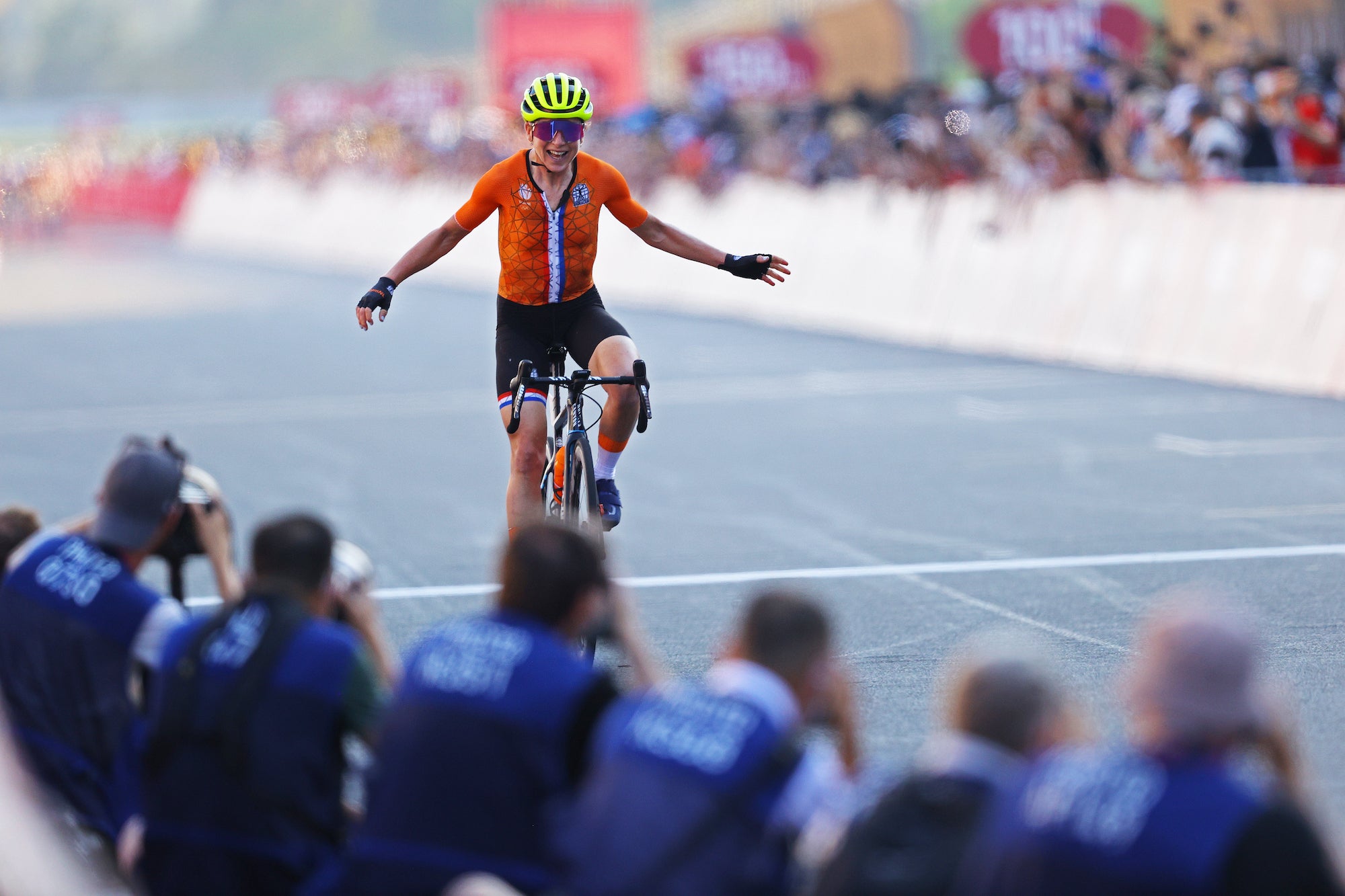Should Olympic road cycling allow in-race radios?

What's missing in this photograph? Ear pieces are not allowed in Olympic competition, and the rule shaped Sunday's outcome. (Photo: Tim de Waele/Getty Images)
Race radios, and their place in the international peloton, are back in the spotlight following Sunday’s emotional finale in the elite women’s road race in the Olympic Games.
Confusion over time splits and what was happening up the road led Annemiek van Vleuten (Netherlands) to believe that she had just won the gold medal when, in fact, it was the silver behind winner Anna Kiesenhofer.
Also read:
- Anna Kiesenhofer surprises the favorites with long-distance attacks
- Annemiek van Vleuten misfires in time-split confusion
Riders are occasionally confused about what’s happening in any race, even when race radios are used.
Also read: The mathematician who calculated Olympic gold
Does racing without race radio deliver a more palpable and engaging result? Or is it an out-dated rule that backfires, and delivers amateur-like outcomes?
Jim Cotton and Andrew Hood take opposing sides of the issue:
No, race radios don’t belong in the Olympics — Jim Cotton
I am going to play devil’s advocate, and say that while race radios are no bad thing, a reliance on them certainly is problematic.
I’m no dinosaur that is anti-power meter, anti-heart rate monitor, etc., but I do believe that the world’s best bike racers should have the experience and smarts to read a race without earpieces. That’s how we did it when we raced our stabilizer bikes around the park when we were kids, and that’s how any rider will have learned their craft through the junior and domestic ranks.
National teams at the Olympics and world championships should never blame a lack of earpieces for a failure to read the race or underestimating an opponent. Plus how can you not enjoy the throwback, all-in racing that comes from teams not having such intimate communications? It adds unpredictability and old-school, full-gas racing.
Should radios stay in the WorldTour? Now that they’ve been introduced, it would be impossible to remove them.
But bring on the rare occasions when it’s radio silence.
Yes, race radios should be in today’s Olympic peloton — Andrew Hood
I know all the hipsters out there love the grainy, black-and-white photos of Fausto Coppi dragging himself up the Stelvio, but this is 2021, not 1951.
The world has changed since the days of wool jerseys and steel frames.
And like it or not, race radios are part and parcel of the everyday peloton at the top of the sport in the 2020s. And they should be.
Race radios not only provide time splits but also deliver critical safety information in real-time in what’s a very dangerous, fast-moving sport.
Huh?
That logic is pure bollocks, as my British friends would say.
So instead of using today’s available technology, i.e., race radios, the International Olympic Committee and the UCI want the world’s best cyclists to rely on an antiquated and potentially dangerous fleet of moving motorcycles, team cars, and perhaps a random TV camera operator to rely on time splits?
Sure, that’s how racing used to be, but it’s not how it is anymore.
By banning race radios in international competition, the UCI and IOC are creating unsafe conditions for the athletes, a rule that is in contradiction to its stated policies of enhancing safety.
A lack of information — be it time splits or the presence of a dangerous corner or traffic circle — only cranks up tension and nerves in the bunch. In fact, eventual winner Anna Kiesenhofer said she attacked early so she wouldn’t have to race in the chaos and danger of the peloton.
Sure, radios also play a hand in tactics and some can correctly make the argument that race radios can smother some of the spontaneity out of racing. The answer to that concern would be to have one-way communication during any race via a race commissaire or safety manager, who could share time splits as well as details about upcoming danger spots on the course.
Did the absence of race radios change the outcome of Sunday’s race? Absolutely. Confusion of what was happening up the road dictated the race dynamics all day long.
Some might think that made for a more interesting and authentic race outcome.
Sure, it was the responsibility of Annemiek van Vleuten and everyone else to know the real-time race situation based on the conditions of not racing with radio contact. And there were plenty of opportunities to get that information throughout the race Sunday.
The Dutch and the peloton left the chase too late. And it’s no guarantee they would have caught her anyway.
Kiesenhofer rode her heart out and won fair and square.
Kudos to her.
Sunday’s radio-free race might have delivered a satisfying Hollywood ending, or was it a one-off aberration that reveals an amateur-like inconsistency in what should be cycling’s biggest platform?
Let the world’s best cyclists use race radios, and let the world’s best cyclist win.